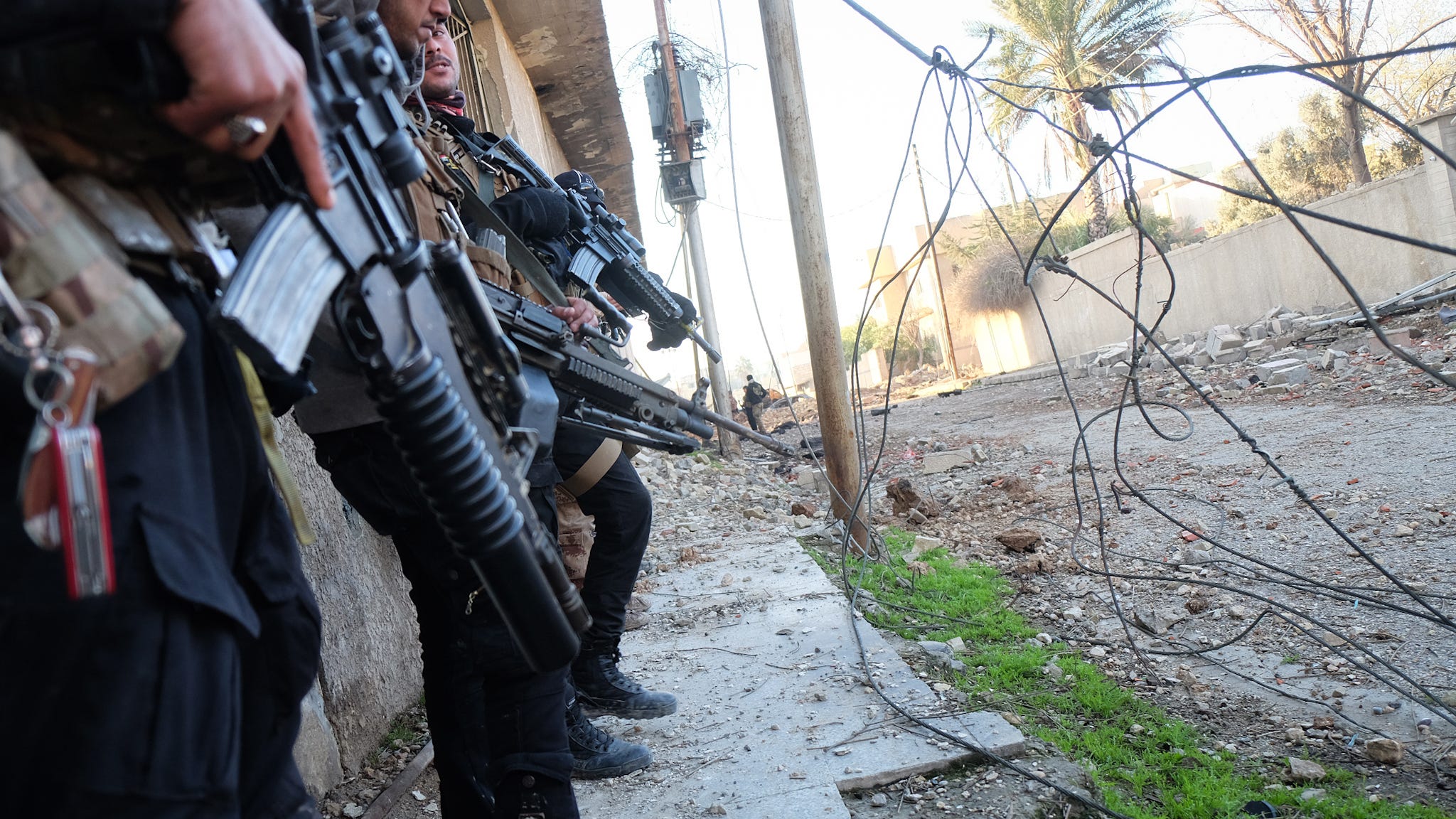I Was Kidnapped in the Middle East in 2013. Last Week I Returned for the First Time.
A veteran war photographer offers devastating up-close images from the front line in Mosul, and explains what keeps pulling him back to the danger zone.

Interview by Sophie Brill
Throughout his career, photojournalist Jonathan Alpeyrie has worked in fourteen different conflict zones around the world. In 2013 he was kidnapped while reporting in Syria and did not know if he would make it out alive. After some time away from the battlefield to cover everything from Donald Trump’s campaign to men who love sex dolls, Alpeyrie returned to the front lines in Iraq last week. He spoke with Narratively about what keeps drawing him back to the most dangerous places on Earth. (Note: This story includes some graphic images.)
What makes you want to work in conflict zones? I decided to become a photojournalist not because of photography, but rather to become part of important historical moments. Photography allows me to get close to the moments that define what it is to be human. I have spent many years searching for answers to the question of why humans can inflict so much pain in order to attain certain goals.
Keep reading with a 7-day free trial
Subscribe to Narratively to keep reading this post and get 7 days of free access to the full post archives.



